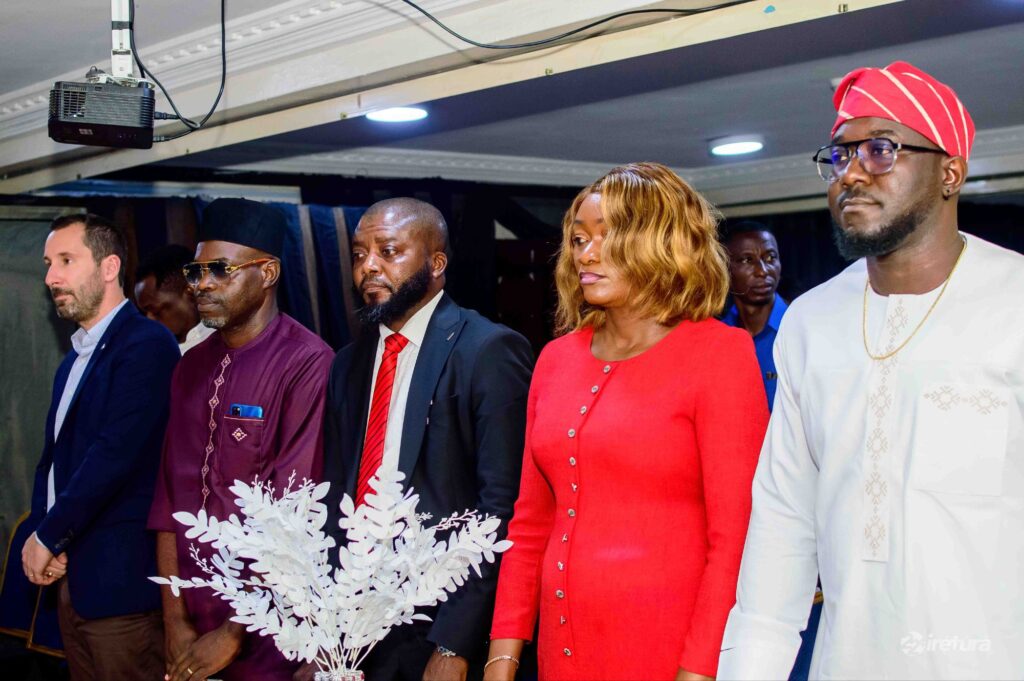News
PHOTOS: SDNON Annual Summit Spotlights Cyber Law and Taxation Shifts Shaping Nigeria’s Media and Economy

The Society of Digital Newspaper Owners of Nigeria (SDNON) successfully hosted its 3rd Annual Digital Media Summit on November 13, 2025, at the Lagos Chamber of Commerce and Industry (LCCI) Conference Centre, Alausa.
The summit brought together journalists, editors, publishers, media executives, human rights advocates, and technology experts to examine the evolving intersection of media, law, policy, and digital governance.
Hosted by Philips Renar, the summit explored Nigeria’s changing regulatory landscape, including the Cybercrime Act, the upcoming 2026 tax reforms, and the responsibilities of digital media practitioners in a rapidly shifting information environment.

The theme for the summit was: “Policy Shifts in Cyber Law and Taxation: What They Mean for the Media and Nigeria’s Economy.”
The summit opened with an address by Mr. Shaba Gbenga, Vice President of SDNON, who represented the association’s leadership in the temporary absence of the President.
He emphasized the critical need for media practitioners to understand and adapt to rapid regulatory changes ahead of Nigeria’s policy reforms in 2026 and the 2027 election cycle.
SDNON welcomed its distinguished guest speaker, Bill Killorn, Executive Director of Journalists for Human Rights (JHR), a Canadian NGO globally recognized for strengthening the capacity of journalists, media outlets, civil society groups, and institutions on human rights and democratic governance.
Killorn delivered a compelling address on the role of responsible journalism in safeguarding democratic values amid rising regulatory pressures.
In recognition of his contributions to global media development, Killorn received an Award of Excellence, jointly presented by SDNON Vice President Gbenga Shaba, Public Relations Officer Kanyinulia Okeke, and keynote speaker Barrister Q.A. Afolabi.
Two keynote sessions anchored the summit’s central discussions:
Q.A. Afolabi, Esq., a leading authority on digital policy, examined current and emerging shifts in cyber law, highlighting implications for press freedom, digital content regulation, and accountability frameworks.
Christopher Dike (ACTI), a chartered taxation expert, provided critical insights into Nigeria’s upcoming tax reforms and their projected economic impact on media organisations and the broader digital ecosystem.
The first panel session, moderated by Olufisola Ige-Lahanmi, focused on the Cybercrime Act and its far-reaching effects on journalism and free expression.

The panel featured: Mr. Kehinde Adegboyega, a human rights activist, stressed that the Cybercrime Act has been misapplied in ways that threaten constitutionally guaranteed freedom of expression.
He cited instances of journalists being detained without warrants under the guise of cyberstalking and called for urgent review.
Jumoke Falayi-Johnson, Chairperson of NAWOJ, highlighted the rising trend of technology-based gender violence against female journalists, revealing that 73% of women in the industry have experienced online attacks, with 10–20% escalating to physical threats.
She encouraged journalists to prioritize safety and join professional associations for protection.

Mr. Onoride “Onos” Akusu, PR expert, urged communication professionals to educate clients on data protection, build audience communities, and maintain control over brand narratives to prevent reputational harm.
The second panel, moderated by Seunmanuel Faleye, focused on Nigeria’s new taxation policies and drew significant participation from attendees.
With the new law set to take effect in 2026, audience members asked numerous questions about its impact on digital publishers, content creators, media entrepreneurs, and small business owners.
Panellists Christopher Dike (ACTI) and Allison Olusegun Chucks provided clarity on compliance requirements, exemptions, and the broader economic implications of the new tax regime.
Students from the Nigerian Institute of Journalism (NIJ) actively participated, engaging panellists with thoughtful questions and gaining firsthand exposure to the challenges and opportunities shaping Nigeria’s evolving media landscape.

SDNON President Adeniyi Ifetayo, who joined later in the program, addressed attendees on the association’s strategic direction and the pivotal role of digital publishers in shaping national discourse.
Former SDNON President Otunba Femi Davies also spoke, emphasizing the importance of preparing for the new tax policy set for implementation in 2026.
The summit recorded strong representation from sister organizations and professional bodies, including:
- Nigerian Guild of Investigative Journalists (NGIJ)
- Nigeria Association of Social and Resourceful Editors (NASRE)
- League of Online Publishers and Editors (LOPE).

The summit also received support from Viju, whose beverage sponsorship energized participants throughout the sessions.
Closing the summit, Mr. Wale Onifade, Chairman of the Planning Committee, thanked attendees for their engagement and wished them a safe journey back to their destinations.

























